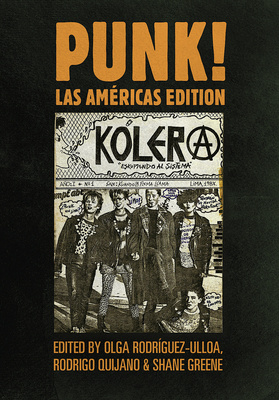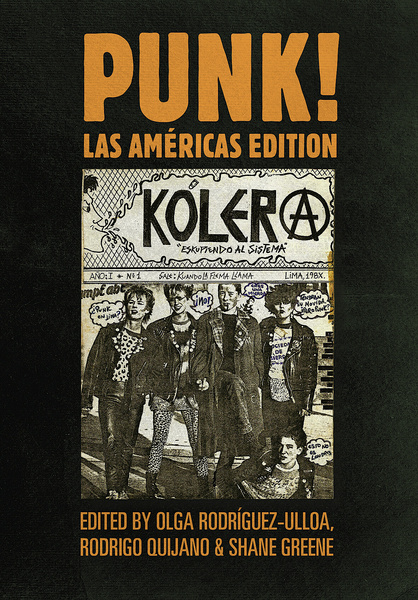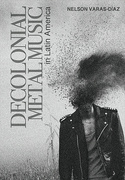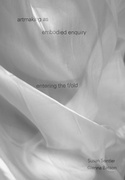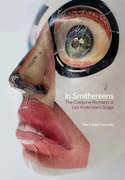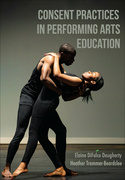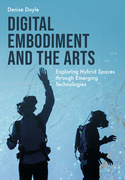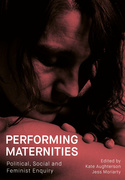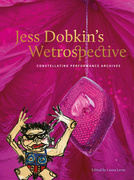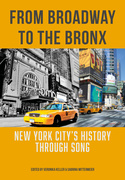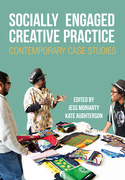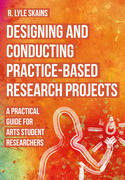PUNK! Las Américas Edition (Book)
A critical refashioning of punk to suggest it emerges from within the long-term historical experience of las Américas in all their plurality. A collage-like juxtaposition of punk perspectives from across the entire hemisphere and via divergent contributions. 71 b/w illus.
PUNK! Las Américas Edition book trailer
New Books Network (New Books in Pop Culture) interview with Olga Rodríguez-Ulloa and Shane Greene
Edition
What does a hemispheric Americas look like when done through the lens of punk music, visuals and literature? That is the core premise of this book, presented through a collage of analytical, aesthetic and experiential takes on punk across the continent.
This book challenges the dominant vision of punk – particularly its white masculine protagonists and deep Anglocentrism – by analysing punk as a critical lens into the disputed territories of 'America', a term that hides the heterogeneous struggles, global histories, hopes and despairs of late twentieth and early twenty-first century experience. Compiling academic essays and punk paraphernalia (interviews, zines, poetry and visual segments) into a single volume, the book seeks to explore punk life through its multiple registers, through vivid musical dialogues, excessive visual displays and underground literary expression.
The kaleidoscopic accounts include everything from sustained academic inquiry and photo portraits to anarchist manifestos and interview excerpts with notable punk figures. The result is a radically heterogenous mixture that seeks to reposition punk and las Américas as intrinsically bound up in each other’s history: for better and for worse. Out of critical pasts, within an urgent present and toward many different possible futures.
This volume critically refashions punk to suggest it emerges from within the long-term historical experience of las Américas in all their plurality and is useful as a mode of critique towards the hegemonic dimensions of America in its imperial singularity. The book is rooted in a theory of 'radical heterogeneity' and thus represents a collage-like juxtaposition of punk perspectives from across the entire hemisphere and via divergent contributions: academic, experiential and aesthetic.
Readership for this collection will include both academic and general readers.
Primary readership will be academic. It will appeal to researchers, scholars, educators and students in the following fields: American studies, Latin American studies, media and communication, cultural studies, sociology, history, music, ethnomusicology, anthropology, art, literature.
General readership will be among those interested in the following areas - anarchism, music, subculture, literature, independent publishing, photography.
Olga Rodríguez-Ulloa teaches at Lafayette College. She specializes in contemporary Latin American culture and literatures, with emphasis on the Andean region.
Rodrigo Quijano is a poet and art researcher. He has worked on contemporary art exhibitions in Lima, São Paulo, Mexico, Buenos Aires, Santiago, Bogotaì, and the 57 Biennial in Venice.
Shane Greene is professor of anthropology at Indiana University Bloomington. He is the author of Punk and Revolution: 7 More Interpretations of Peruvian Reality (2017, Duke University Press).
Acknowledgments
Introduction: ¿Otro Punk es Posible? Heterogeneous Histories, Contested Territories
Olga Rodriguez-Ulloa, Rodrigo Quijano, and Shane Greene
CONTESTED TERRITORY 1: COLONIALITY AND CULTURAL RESILIENCE
1. The punk indigenous: Mapunkys
Agustina Paz Frontera
2. The Monument: The anchorage scene as colonial history
Thomas Michael Swensen
CONTESTED TERRITORY 2: SIGHTS, SOUNDS, AND IM/POSSIBLE DIALOGUES
3. Sonic agitation
Jon Horne Carter
4. Brown gaze, feminine gaze / queer punk, latin punk
Amina Cruz
5. Lima 77
Rodrigo Quijano
6. Stepping on the flowers with Brazil’s early punks
Alexander S. Dent
7. “I really thought it was about fucking revolution” (interview)
Martín Crudo and Shane Greene
8. Porno para Ricardo, unplugged (comment and video transcript)
Shane Greene and Olga Rodríguez-Ulloa
CONTESTED TERRITORY 3: IDENTITY, VOICE, AND STRUGGLE
9. Sadistic cholas: Sex and violence in punk literature
Olga Rodríguez-Ulloa
10. Pa’ los jodíxs: The anti-movement of borícua punk
Judith Rodríguez
11. Hysterics, rebels, and punks: Collectivity and feminism in Mexico City
Merarit Viera Alcazar
12. “This is not what Afro-Punk is about” (interview)
James Spooner and Shane Greene
13. Notes on femzines from Colombia (comment on zines, punk, and feminism)
Minerva Campion and Rapiña
14. “I don’t care what you think and you can’t hurt me” (interview)
Alice Bag and Olga Rodríguez-Ulloa
CONTESTED TERRITORY 4: STATES, BORDERS, AND VIOLENCE
15. Punk and the drug war in Mexico (record review and interviews)
Stuart Schrader, Yecatl Peña, Fani Suarez, Violeta Hinojosa, and Dave Rata
16. Burning Down the City (novel excerpt)
Julio Durán
17. I disrespect authority: Punk disobedience and activism in post-dictatorship Argentina (comment on documentary images)
Pat Pietrafesa
18. "Los frikis”: Voices from the first wave of Cuban punk (comment and testimonial)
Carmen Torre Pérez
CONTESTED TERRITORY 5: INDIVIDUALISMS OF HOPE AND DESPAIR
19. Not your punk
Shane Greene
PARAPHERNALIA
20. “The first lesson was self-definition” (interview)
Ian MacKaye and Shane Greene
21. Third world punk manifesto (poetry, manifesto, and film review)
Giovanni Oquendo
22. Scene report on straightedge hardcore punk and activism at the Festival Verdurada in São Paulo (scene
report)
Jess Reia
IN LIEU OF A CONCLUSION – A PUNK MANIFESTO
23. 40 years of punk in the world, Mexico 2017
Magos Rebelde
Author Biographies
Index
'The book moves beyond the analysis of a single scene, city or nation to consider the ‘radical heterogeneity and simultaneous interconnectedness of the Americas through a series of critical punk lenses’ (16). Contributors explore Spanish-speaking parts of the Americas, native Alaskans, the English-speaking Caribbean and Brazil. The geographical reach is vast and the cultural approaches to punk in these parts of the Americas display both commonalities and unique characteristics and struggles. [...] The chapters include a mix of traditional academic essays, interviews, a manifesto, an excerpt from a novel, photo essays, a blog reproduction and contributions that are more journalistic in form. The inclusion of different types of materials and diverse analytical approaches yields an edited collection with a rich texture. Moreover, the varied approaches to engaging and analysing punk provide a much more interesting opportunity for a reader to consider how punk exists as a blend of music, cultural practice, ethical framework and way of being in the world. [...] The diverse types of contributions to PUNK! Las Américas Edition make for an engaging intellectual experience that mirrors the myriad ways punks materialize a punk life.'
'PUNK! Las Américas Edition expands the understanding of punk and serves a very important anti-colonial purpose in punk-related scholarship.'
'Showcasing the work and testimony of scholars, artists, and activists from Alaska to Patagonia, and many places in between, through essays, interviews, record reviews, poems, novel excerpts, photographs, zines, record and cassette covers, and manifestos, PUNK! Las Américas Edition invites us to think about punk otherwise. By critically engaging with punk as a musical genre and subculture and as an aesthetic and disposition with multiple interconnected manifestations across the hemisphere, this book demonstrates that punk has much to teach us about the Américas and that the Américas have much to teach us about punk.'
'This volume is a practice: it shows "contradiction" empirically and uses it abstractly, it distinguishes between "the visual" and "the sonic" and mixes them ch’ixi style as it does "the oral" and "the written" – but sorry: because heterogeneity is a main analytics, there is not "the" singular anything: sonic, visual, oral or written – and therefore, perhaps, neither of those fields should be separated … but they are: ch’ixi style! On transgressing, this volume shows complexity and its "method" becomes tangible, as tangible as all the brilliant hiStories it tells and hints at. An academic book through and through, the transgressions this volume performs run the risk of becoming exemplary. An inspiring thrill to read and indeed to think through. Congratulations to its heterogenous editors!'

